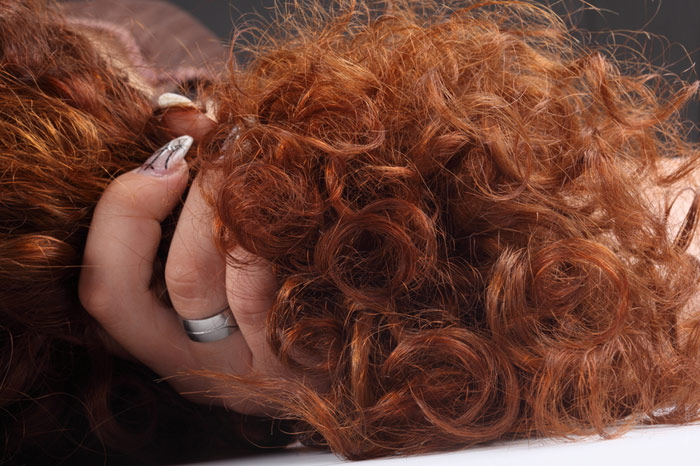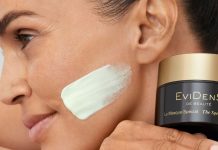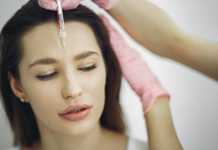The No Poo (No Shampoo) movement is as popular as before. Forums and social networks are filled with happy stories like “I haven’t washed my hair for a month,” or “I only wash my hair with water!”. However, dermatologists and trichologists are beginning to sound the alarm: they warn us that No Poo may lead to hair loss!

This month the American media has published many materials about the hair loss problem. September has been declared National Alopecia Awareness Month in the United States. Some of these materials have scientifically proved the harm of non-shampoo hair care. Maybe it is time for us to learn more about the popular movement.
What is No Poo?
This is the movement, the members of which give up purchased shampoo and conditioner, for the sake of health and natural products. There are several options how to do it:
some give up shampoo completely and wash their hair with water only;
some just rinse their hair with herbs and use hair conditioner;
some use only dry shampoo and rinse hair with water;
some advocate the use of homemade shampoos and conditioners (made from oils, baking soda, vinegar, etc.).
Why are women refusing the shampoo nowadays? There are several explanations. Firstly, it is the presence of sodium lauryl sulfate in shampoos (sulfates are undesirable components for hair and skin). Secondly, it is believed that shampoos make hair heavier and even lead to its excessive greasiness. It is explained by the fact that shampoos deprive the scalp and hair of sebum, which, in turn, triggers its excessive production.
Why are dermatologists against?
There have recently appeared numerous opinions of respected authorities on giving up shampoo. Previously, we had mainly beauty bloggers to trust. And that’s what trichologists and dermatologists say:
Hair cleanliness is essential for its health. A greasy scalp is a favorable environment for the growth of fungi that can cause inflammation. Therefore, neglecting scalp cleanliness can have serious consequences: yeast infection, inflammation, and hair loss.
Another question is the effectiveness of homemade soda and apple cider vinegar shampoos and lemon juice rinses. Here, there is no good news either. Specialists insist that soda and vinegar are more harmful than a ready-made shampoo. A homemade shampoo can damage your hair: apple cider vinegar and lemon juice are even more damaging to hair color than sulfates are – they have an acidic medium that can change and destroy color. Baking soda dries the scalp and hair, which may cause hair brittleness, thinning, and follicle destruction. As a result, it may lead to hair loss.
However, if you continue having doubts about the safety of a purchased shampoo, you need to know that there are healthy products on sale, as well. It is only necessary to choose them properly.
The ideal shampoo, ideal hair care
So, what is a safe shampoo? What product should you look for in the store?
If you do not want sulfates, buy a product labeled “sulfate-free”.
Avoid products with parabens.
Look for alcohol-free shampoos and conditioners because they make hair excessively dry.
However, it is important not only to have a good hair care product, but also to perform the procedure properly. Scalp care is the main condition for healthy and thick hair. You must take care of the scalp no less than of the face and body. This means that you should pay attention to cleansing, massage, moisturizing, and treatment.
Look for the same ingredients in hair care products that you look for in skin care products – retinol, peptides, salicylic acid, collagen, hyaluronic acid, natural oils, biotin, and vitamins. In fact, many of these ingredients have an oily formula. So, if you have oily hair, look for oil-free alternatives – for example, willow bark extract is an oil-free alternative to salicylic acid.
If you have dry hair, look for shampoos with creamy, non-transparent, and thick consistency. If the scalp and hair is oily, you can use transparent and gel textures.
Experts approve of using dry shampoo. Again, we are not talking about homemade products with cornmeal, which has too large granules, clogging the pores of the scalp. Dry shampoos from well-known brands have a safe formula, but if you have any doubts, look at the label and search for the ingredients that are useful for the scalp. There are dry shampoos for dandruff treatment, oily or dry hair – consider your hair type when purchasing.
Finally, one more important tip: mind your lifestyle. Hair condition is affected by nutrition and hormone balance. Protect your hair from the sun and aggressive environmental influences, and then you will not need to follow the No Poo movement.










